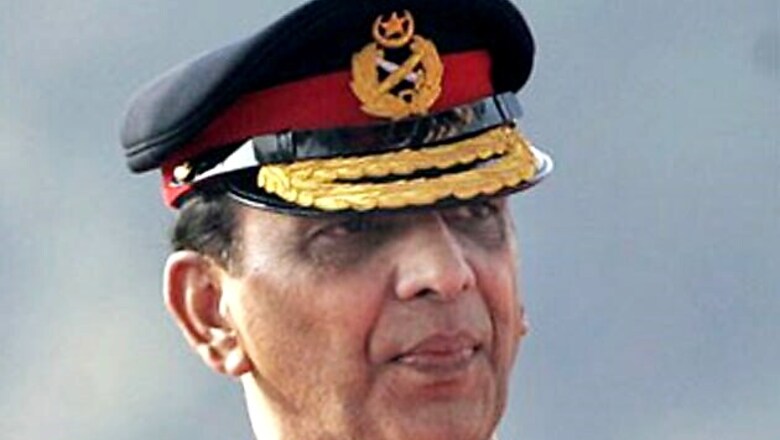
views
Islamabad: In an apparent riposte to orders issued by the Supreme Court against two retired generals for rigging the 1990 polls, Pakistan's powerful Army Chief Gen Ashfaq Parvez Kayani on Monday said no single institution could define national interests or exceed its role under the Constitution.
Noting that Pakistan was going through a "defining phase", Kayani said: "No individual or institution has the monopoly to decide what is right or wrong in defining the ultimate national interest. It should emerge only through a consensus and all Pakistanis have a right to express their opinions".
Addressing a group of officers at the army's General Headquarters in Rawalpindi, Kayani further said: "Weakening of the institutions and trying to assume more than one's due role will set us back. We owe it to the future of Pakistan to lay correct foundations today."
"We should not be carried away by short-term considerations which may have greater negative consequences in the future". A statement issued by the military did not explain the context of Kayani's remarks though media analysts said the comments appeared to be a response to several cases taken up by the apex court and the combative Chief Justice Iftikhar Chaudhry.
On October 19, a bench headed by the Chief Justice ordered the government to take action against former army chief Gen Mirza Aslam Beg and former Inter-Services Intelligence chief Lt Gen Asad Durrani for distributing millions of rupees to politicians to rig the 1990 general election. The court issued the order after taking up a petition filed by former air force chief Asghar Khan 16 years ago.
The apex court has also been pressuring the army and intelligence agencies to hand over "missing persons" or people detained without charge in the northwest and Balochistan province during anti-militancy operations.
Pressure from politicians also forced the army to reinstate three generals who retired several years ago so that they could be court-martialled for alleged involvement in a financial scam instead of being hauled up before a civilian
court. These generals have been accused of obtaining loans worth Rs 4.3 billion and investing the funds in the volatile stock market.
In an apparent reference to all these charges, Kayani said: "As a nation, we are passing through a defining phase. We are critically looking at the mistakes made in the past and trying to set the course for a better future. An intense discussion and debate is natural in this process". He added, "While individual mistakes might have been made by all of us in the country, these should be best left to the due process of law.
"As we all are striving for the rule of law, the fundamental principle that no one is guilty until proven, should not be forgotten. "Let us not prejudge anyone, be it a civilian or a military person and extend it, unnecessarily, to undermine respective institutions".
Kayani made it clear that no individual or institution has the monopoly to define the national interest and that the Constitution provides a "clear mechanism" for addressing such issues. "We all have a great responsibility to shoulder. We should learn from our past, try to build the present and keep our eyes set on a better future.
"We all agree that strengthening the institutions, ensuring the rule of law and working within the well defined bounds of the Constitution is the right way forward," he said.



















Comments
0 comment